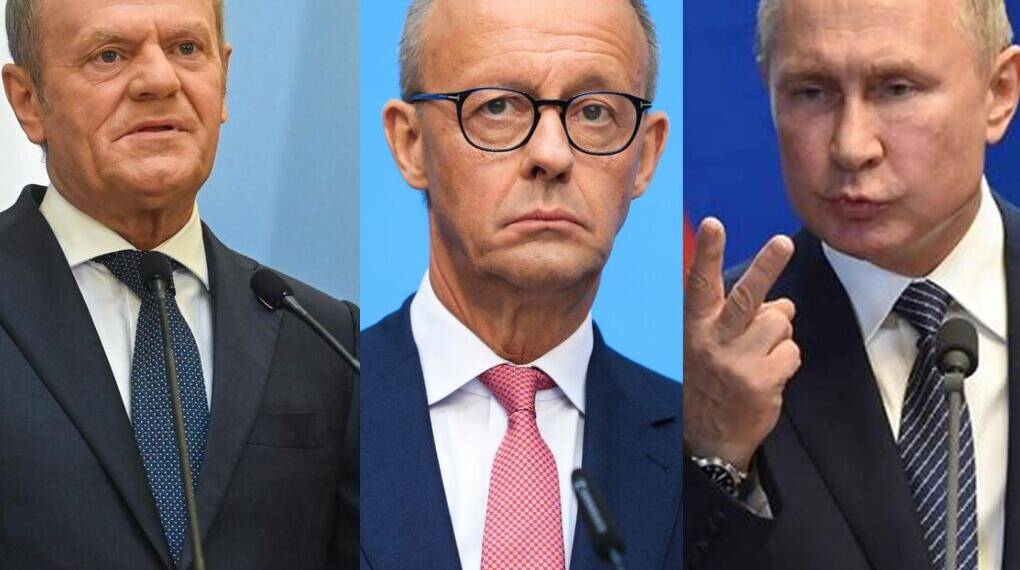Poland has issued a stunning ultimatum to Germany, demanding an immediate halt to its investigation into the 2022 Nord Stream pipeline sabotage. The call, led by a top national security official, reveals deep unease within Poland’s leadership and exposes fault lines in NATO’s united front against Russia.
At its core, Warsaw fears that pursuing the culprits—widely believed to include Ukrainian operatives—could fracture the alliance and hand Moscow a propaganda victory.
The Nord Stream 1 and 2 pipelines, which once funneled Russian natural gas to Germany under the Baltic Sea, were crippled by explosions on September 26, 2022. The attacks unleashed massive methane leaks and severed a key energy link amid the escalating Ukraine war.
Initially, fingers pointed at Russia, with speculation of a Kremlin-orchestrated stunt to flex its energy muscle. But as Germany’s dogged probe zeroed in on Ukrainian suspects, including a diving instructor linked to the sabotage team, Poland’s stance shifted from quiet approval to outright alarm.
A Pipeline to Panic
Poland, long a fierce critic of Nord Stream as a conduit for Russian influence, initially welcomed the pipelines’ destruction. The sabotage aligned with Warsaw’s strategic goal: weakening Moscow’s grip on Europe’s energy markets. Yet, as Germany pressed forward with arrest warrants and detentions, Poland’s political class began to see the investigation as a liability.
The fear is that prosecuting the saboteurs could validate Russia’s narrative of NATO-orchestrated “terrorism” while straining ties with Ukraine, a vital ally Poland has supported with billions in military aid.
The head of Poland’s National Security Bureau, a key advisor to the president, has argued that continuing the probe serves narrow German interests at the expense of broader alliance goals.
He contends that digging deeper risks diverting focus from Russia’s aggression in Ukraine and could embolden Moscow to exploit divisions within NATO. Poland’s prime minister has echoed this sentiment, suggesting that the real mistake was building the pipelines in the first place, not their destruction.
A Geopolitical Minefield
The Nord Stream saga is more than a whodunit—it’s a test of NATO’s cohesion. Poland’s demand reflects a broader anxiety: that the investigation could expose uncomfortable truths about Western involvement or tacit approval of the sabotage.
If Ukrainian operatives acted with any nod from NATO allies, the fallout could be catastrophic, alienating Eastern European members who see Russia as an existential threat. Conversely, Germany’s insistence on justice risks painting it as out of step with its hawkish allies, especially Poland, which has pivoted to U.S.-backed energy alternatives like the Baltic Pipe.
Poland’s refusal to fully cooperate—evidenced by its brief detention and subsequent release of a key suspect—has already sparked friction with Berlin.
German prosecutors, undeterred, are reportedly preparing for trials that could implicate not just low-level operatives but higher figures in Kyiv or beyond. Such a move could trigger legal battles within the EU or even escalate to extradition disputes, further eroding trust among allies.
Why the Panic?
The unease gripping Warsaw’s elite, amplified by viral online discussions, stems from a delicate balancing act. Poland cannot afford to alienate Ukraine, a frontline buffer against Russia, nor can it risk fueling Moscow’s claims of Western hypocrisy.
The sabotage, while a tactical win, threatens to become a strategic liability if it exposes rifts in NATO’s resolve. Some speculate that Poland fears the probe could uncover evidence of broader complicity, raising questions about who knew what—and when.
As the U.S. elections loom and Europe grapples with energy insecurity, Poland’s plea to Germany is a desperate bid to keep the focus on defeating Russia, not litigating a sunken pipeline. Yet Berlin’s commitment to its judicial process shows no signs of wavering, setting the stage for a high-stakes showdown. The Nord Stream wreckage, lying silent on the Baltic seabed, remains a ticking time bomb—one that could either galvanize NATO’s resolve or blow its unity apart.








